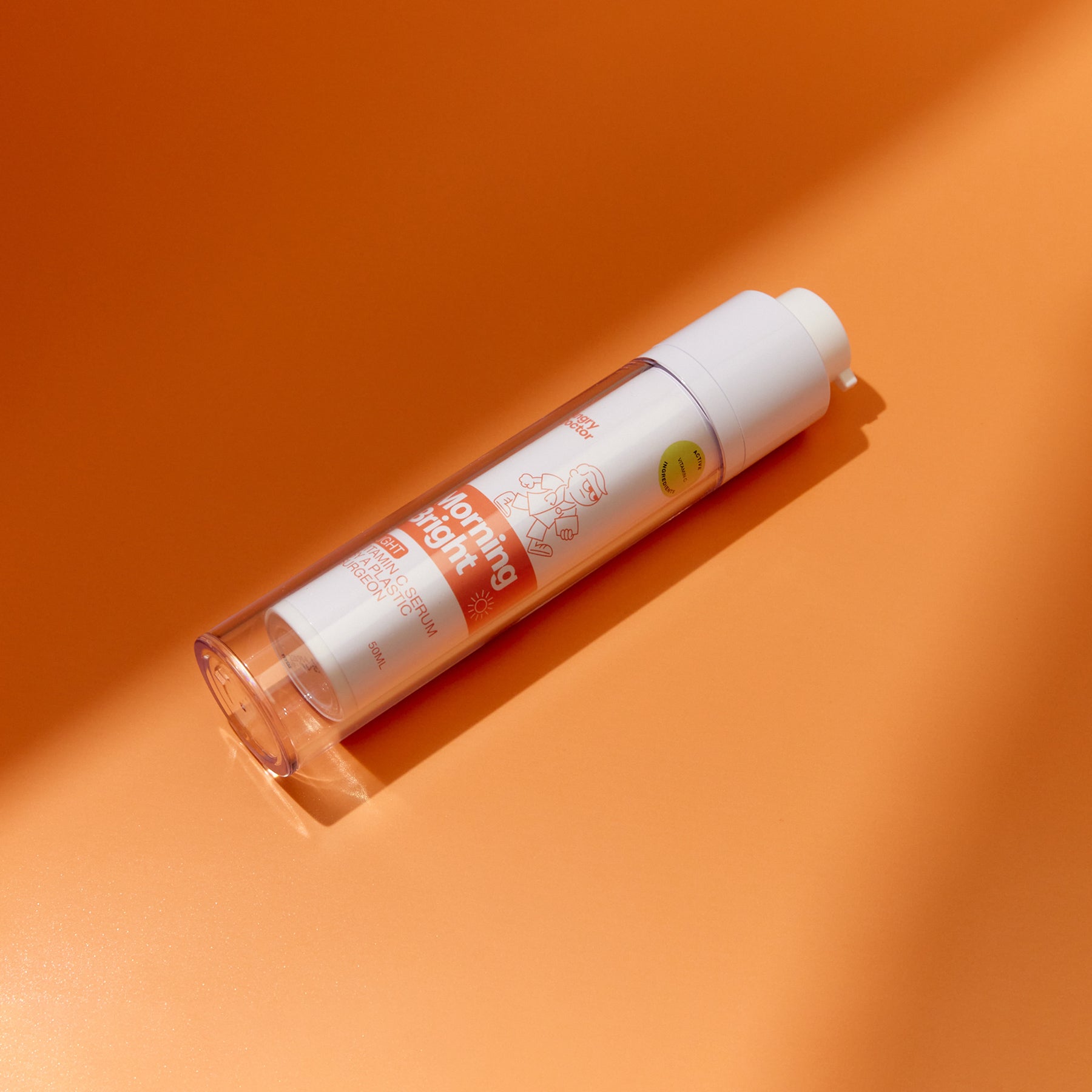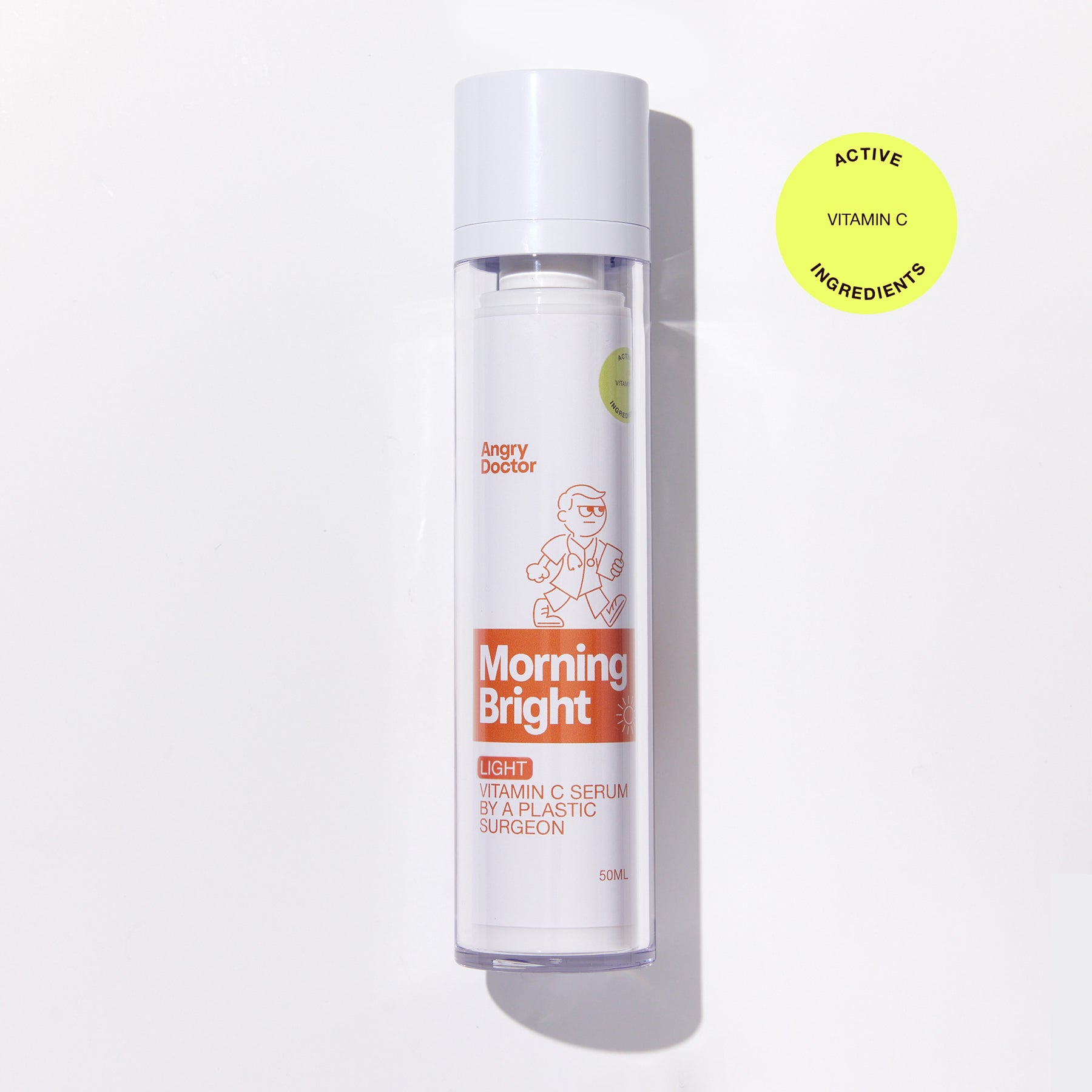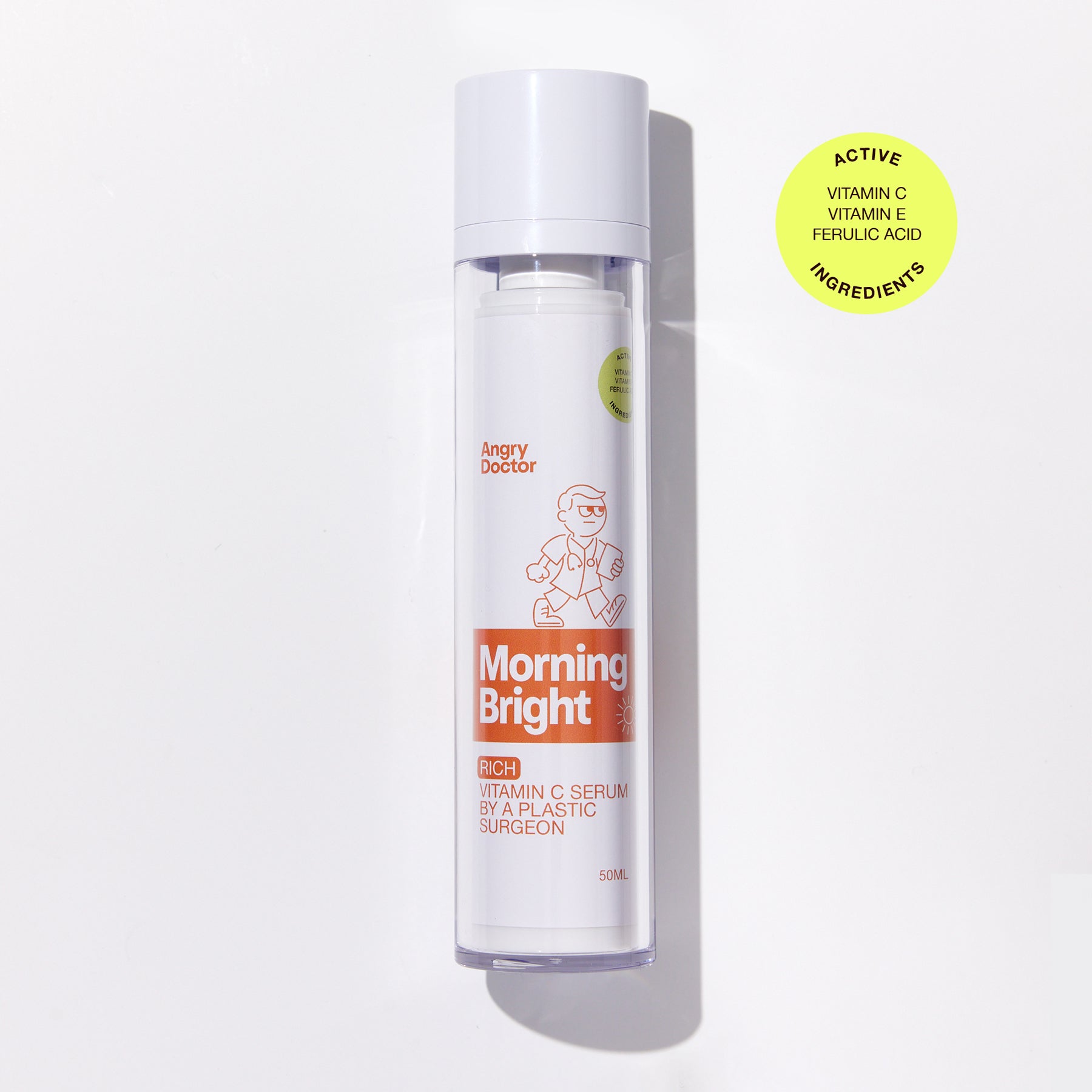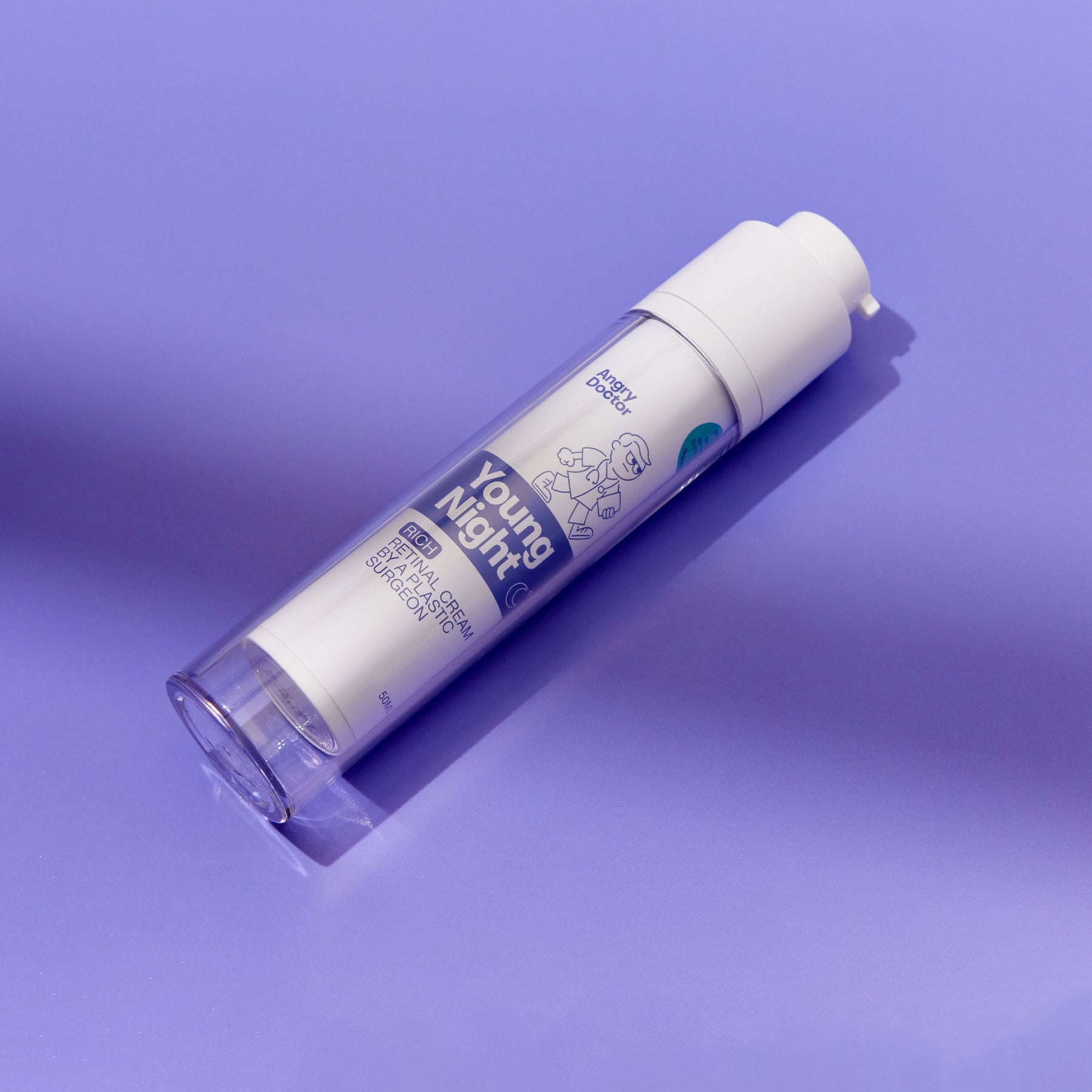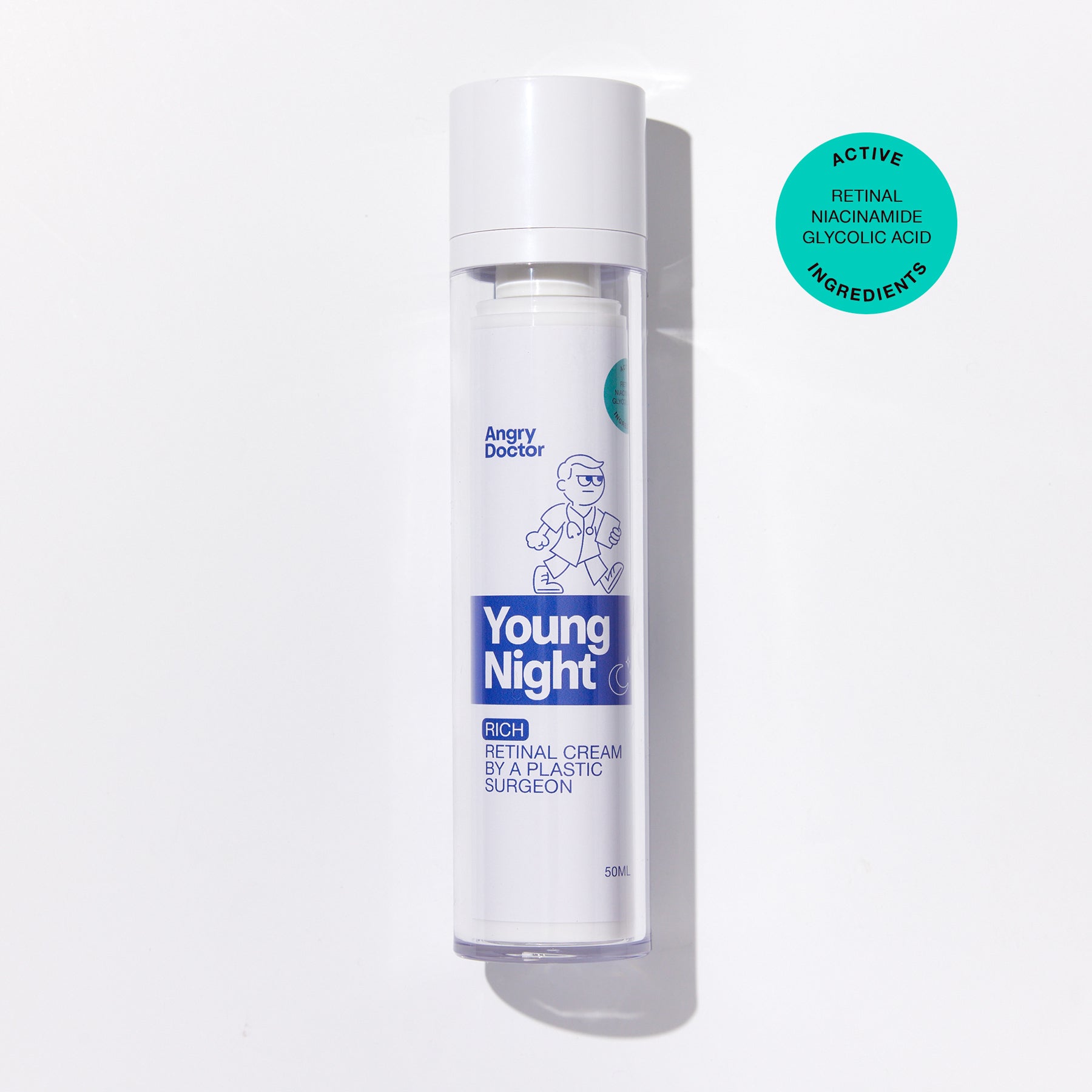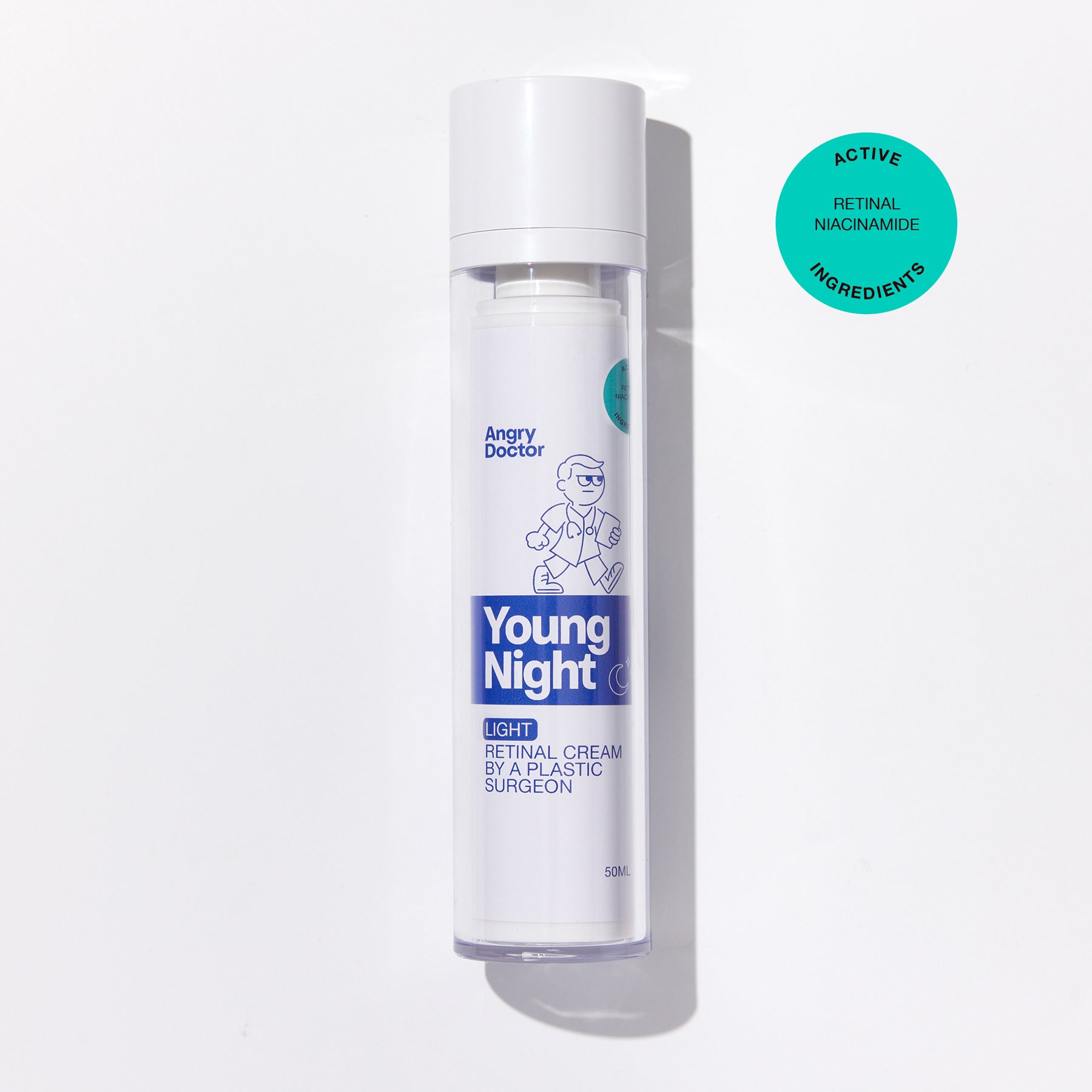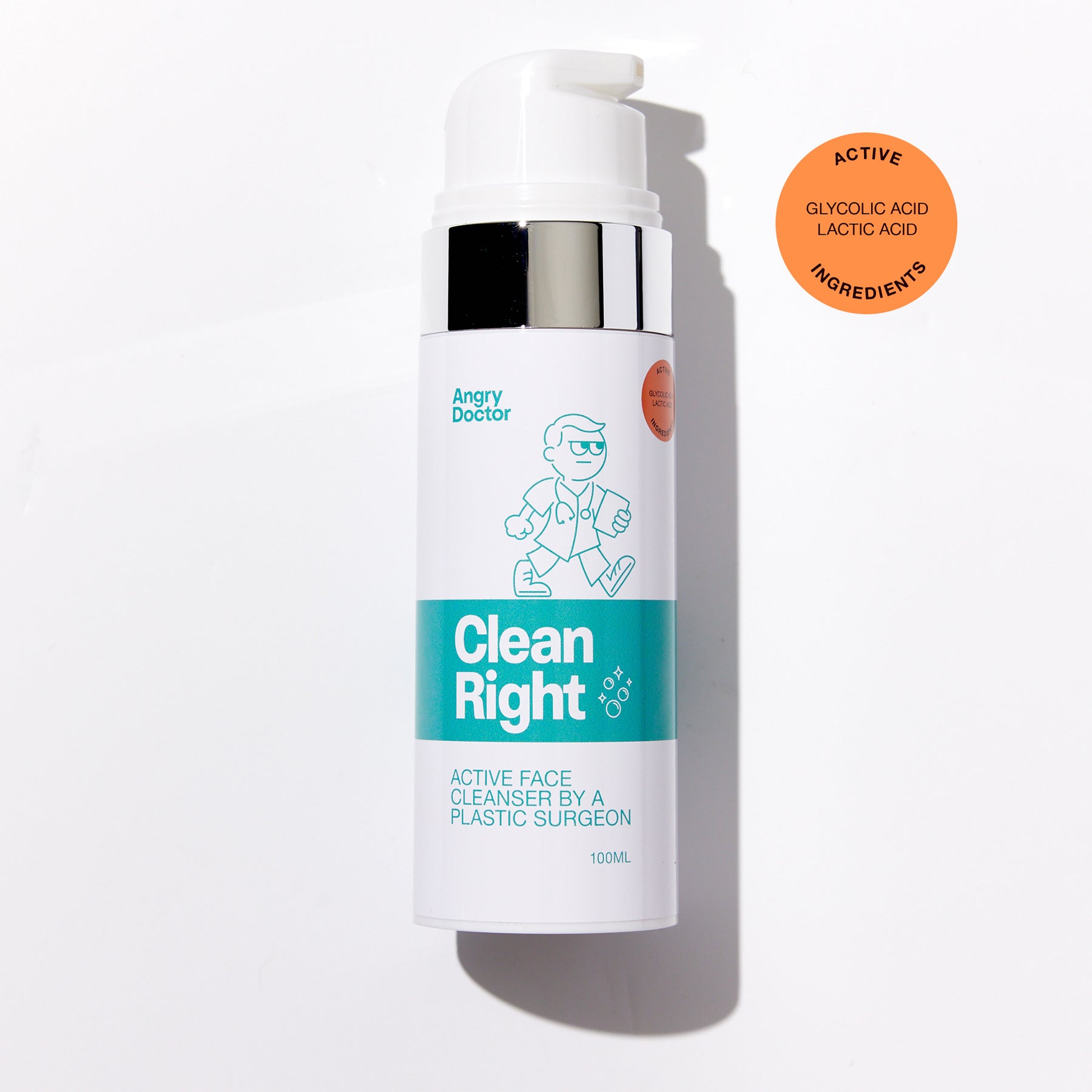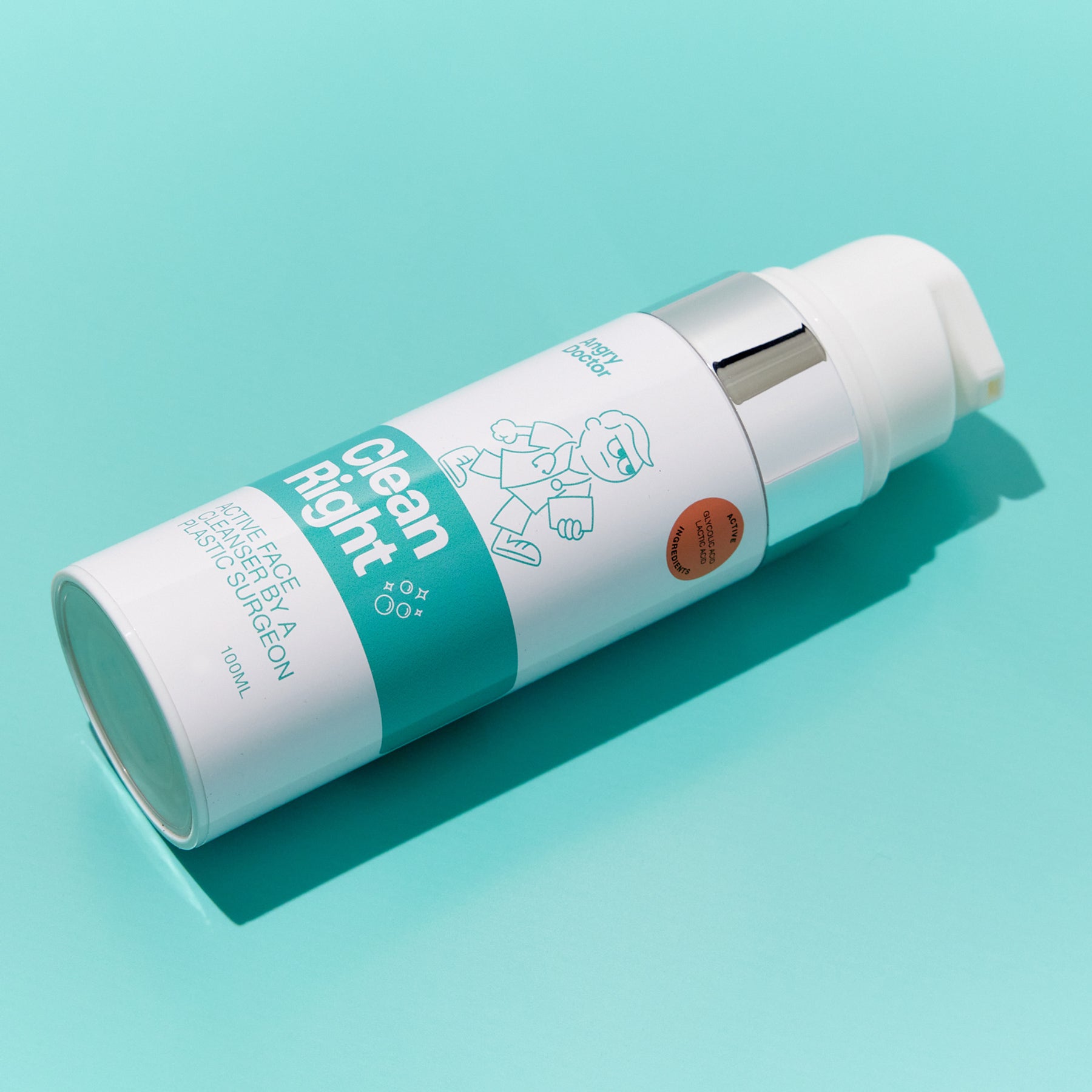

The most common SPF (and sun protection) questions, answered
Sunscreen: you probably have memories of it being applied to your limbs as a small child at the local pool – wriggling around as your parents rubbed it in, popped a hat on your head and a pair of floaties on your arms. Maybe you layered on the zinc every Saturday before heading out onto the netball court or cricket pitch. Or perhaps you’re part of the generation that missed the message about the importance of sunscreen and opted for baby oil instead. Naughty, naughty! Whatever your memory of growing up under the Australian sun, those rays – which are ultraviolet radiation (UVR) – were always present.
I harp on about active skincare a lot. But when we talk about healthy skin for LIFE, it’s the benefit of sun protection, a balanced diet and Angry Doctor active skincare together that’s worth shouting from the rooftops. And I love climbing on roofs. If you’re partaking in these three things, you’re doing something right.
I see more patients than I care to admit with sun-damaged skin. It’s estimated that up to 95% of melanomas and 99% of non-melanoma skin cancers (NMSC) in Australia are caused by overexposure to UVR. Children and young adults are also at high risk, with UVR exposure during a person’s first 18 years of life the most critical for cancer-causing skin damage. So, if you were that kid at the pool with a parent liberally applying sun lotion to your back, you should thank them.
SPF is bloody important. And not just when you’re on the beach or on a hike – it’s an everyday non-negotiable. 365 days. Seven days a week. Sunny. Overcast. It’s one of the easiest and most effective ways of protecting your skin from the sun’s harmful rays – rays that can age us and cause cancer. If you need more convincing (you shouldn’t) then read my answers to some of the most common SPF questions.
How does wearing SPF protect skin from ageing?
When our skin is exposed to the sun's UV rays, it can cause damage to its DNA, leading to premature ageing, sunspots, pigmentation and wrinkles. Sunscreen with a high SPF helps to block out these harmful rays, preventing them from penetrating the skin and causing damage. In fact, a study in 2013 – Sunscreen and Prevention of Skin Aging: A Randomized Trial in the Annals of Internal Medicine – found that regular sunscreen use protects against photoageing: the wrinkling, spotting and loss of elasticity caused by exposure to the sun’s ultraviolet radiation. While they may not be shocking, the findings – from Australian researchers – are scientific proof of the nature of sunscreen’s anti-ageing properties.
How does wearing SPF protect skin from melanoma and skin cancer?
SPF, or sun protection factor, in sunscreen protects the skin from the sun's harmful ultraviolet (UV) radiation. Specifically, SPF protects the skin from UVB rays, which are the primary cause of sunburn and skin cancer. When UVB rays penetrate the skin, they damage the DNA in skin cells, leading to mutations that cause the visible irreversible deterioration of your skin and can eventually lead to skin cancer. But, applying sunscreen will help to block out a significant amount of UVB radiation from penetrating the skin. This, in turn, helps to reduce the risk of DNA damage, mutations and ultimately skin cancer. It's important to note that no sunscreen can completely block out all UV radiation, so it's essential to use other forms of sun protection, like wearing protective clothing and seeking shade during the heat of the day. Real talk: you only get one skin for your life. DNA damage is much easier to prevent than to treat, and the key to prevention is sun protection behaviours. I’ve personally treated many patients who’ve had skin cancer in their 20’s and 30’s and have had several patients in this age group die of skin cancer over my career. You might not be aware that well over half of all Australians will get skin cancer eventually.
What's the deal with SPF 15, 30 and 50+?
The SPF, or sun protection factor, of sunscreen refers to how much protection it provides against UVB rays, which are the primary cause of sunburn. SPF 15 provides 93% protection against UVB rays, SPF 30 provides 97% protection, and SPF 50+ provides 98% protection. While the difference between these levels of protection may seem small, it can make a significant difference in preventing sun damage. Make sure you apply your sunscreen liberally to achieve the SPF protection stated on the label – and always opt for one that’s broad spectrum (which protects you from both types of UV light: UVA and UVB). And you (should) know the deal: make sure you're applying the best sunscreen for the scenario you’re in (think water-resistant or sweat-proof if you’re out and about and it’s a stinker).
What's the difference between chemical and physical SPF?
Chemical sunscreens work by absorbing the sun's UV rays, while physical sunscreens work by reflecting them. Chemical sunscreens often contain ingredients like avobenzone and oxybenzone, while physical sunscreens contain ingredients like zinc oxide and titanium dioxide. Both types of sunscreen can be effective, but physical sunscreen may be better for those with sensitive skin or who are prone to breakouts.
What are UVB and UVA rays and how do they affect the skin?
UVB rays are a type of ultraviolet ray that is the primary cause of sunburn and immediate damage to the skin. Prolonged exposure to UVB rays can also increase the risk of skin cancer. Sunscreen with a high SPF can help to block out UVB rays and protect the skin from damage. UVA rays are another type of ultraviolet ray that can penetrate deep into the skin and cause long-term damage. Unlike UVB rays, UVA rays do not cause sunburn but can cause premature ageing, wrinkles and an increased risk of skin cancer.
Are SPF and vitamin C a good combination?
You bet! Studies have shown that applying a vitamin C serum like my Angry Doctor Morning Bright ‘Light’ or ‘Rich’ prior to SPF can optimise its sun protection, addressing damage from the sun and pollutants by neutralising free radicals before exposure. So, on its own vitamin C doesn’t directly contribute to sun protection, but when combined with a broad-spectrum SPF it helps amplify its effectiveness. And, as I’ve banged on about before, vitamin C has a whole host of its own benefits too.
How much sunscreen should you apply?
Good question. As a general rule, it's recommended to apply at least 30 mls of sunscreen (about a shot glass full) to cover all exposed skin. For your face, a teaspoon amount is a good guide.
How often should you reapply sunscreen?
It's recommended to reapply sunscreen at least every two hours, or immediately after swimming or sweating – you can check the label on it too. Don’t forget that sunscreen can also wear off throughout the day, especially if you're wiping your face. Reapplication is just as important as the initial application – so don’t forget, ok?
What are some other forms of sun protection?
Sunscreen is always a must – wearing protective clothing, like a long-sleeved shirt, rashie or wide-brimmed hat, seeking shade and popping on a pair of sunglasses will also win you big points in the fight against sun damage.
Should you wear sunscreen every day?
Abso-bloody-lutely! SPF is essential for protecting your skin from sun damage, including premature ageing and an increased risk of skin cancer. Don’t skip it. I’ll know if you do!
References:
Maria Celia B. Hughes, MMedSci, Gail M. Williams, PhD, Peter Baker, PhD, and Adèle C. Green, MBBS, PhD. Sunscreen and Prevention of Skin Aging A Randomized Trial in the Annals of Internal Medicine. 2013.
Heather Walker, Clover Maitland, Tamara Tabbakh, Paige Preston, Melanie Wakefield, and Craig Sinclair. 40 Years of Slip! Slop! Slap! A call to action on skin cancer prevention in Australia. 2022.

